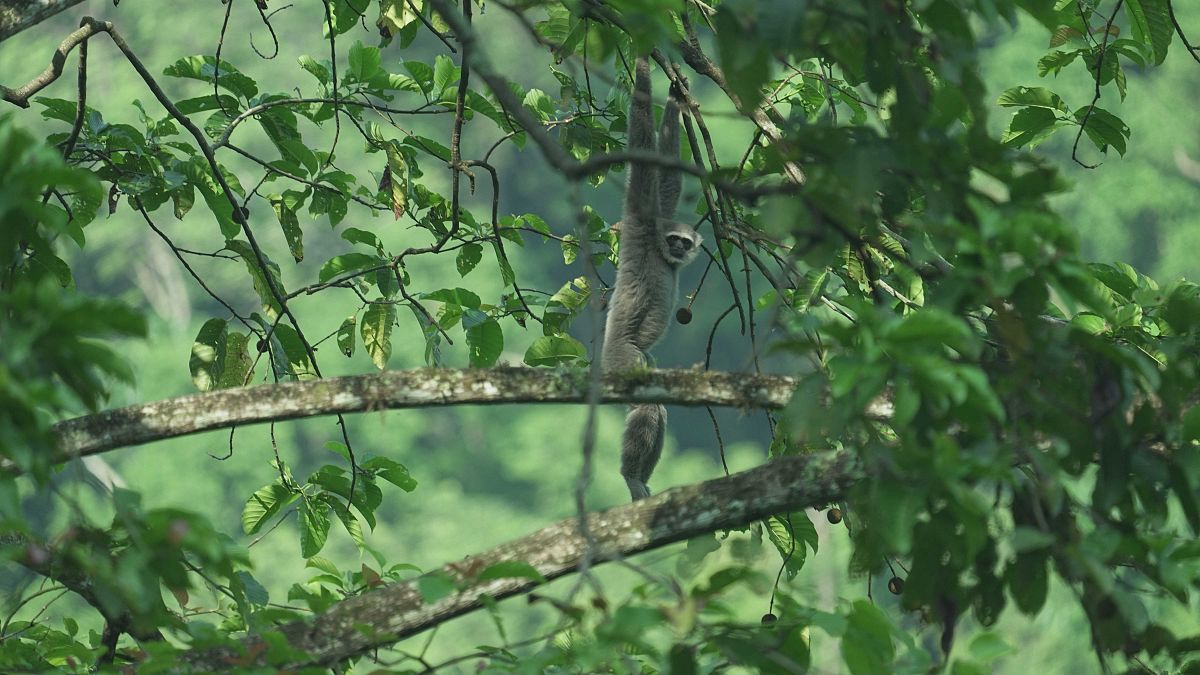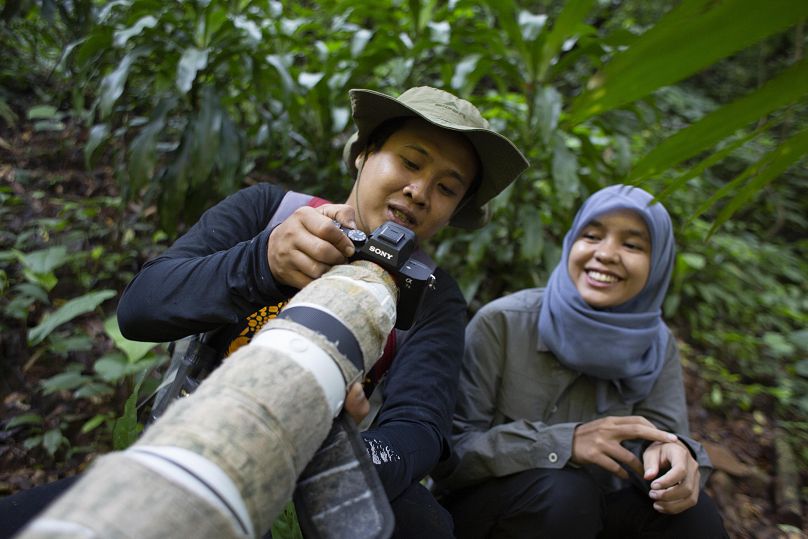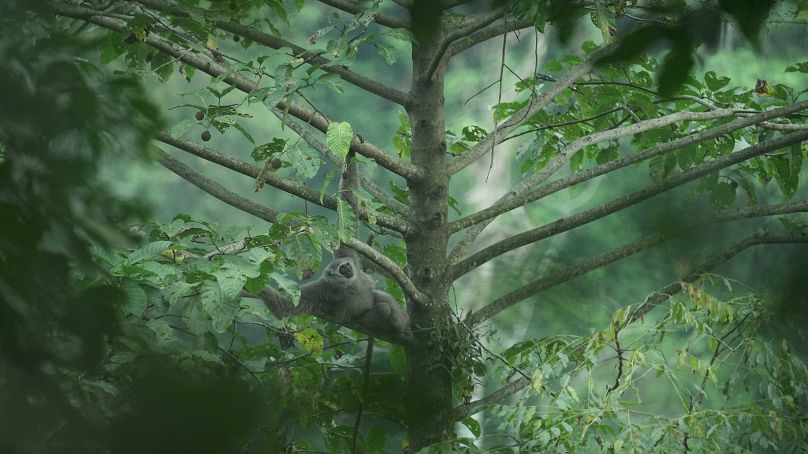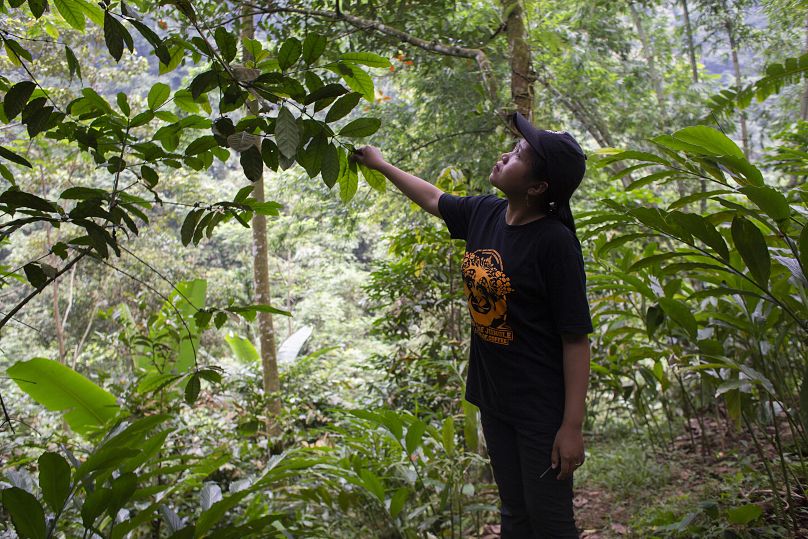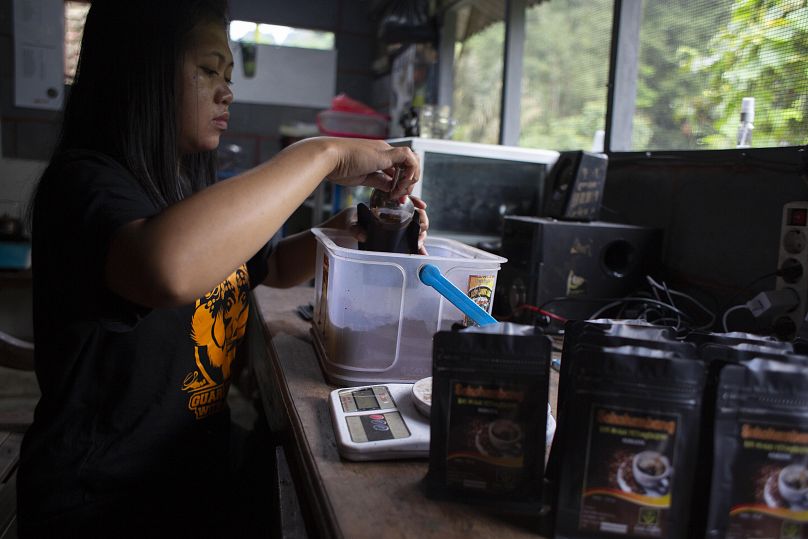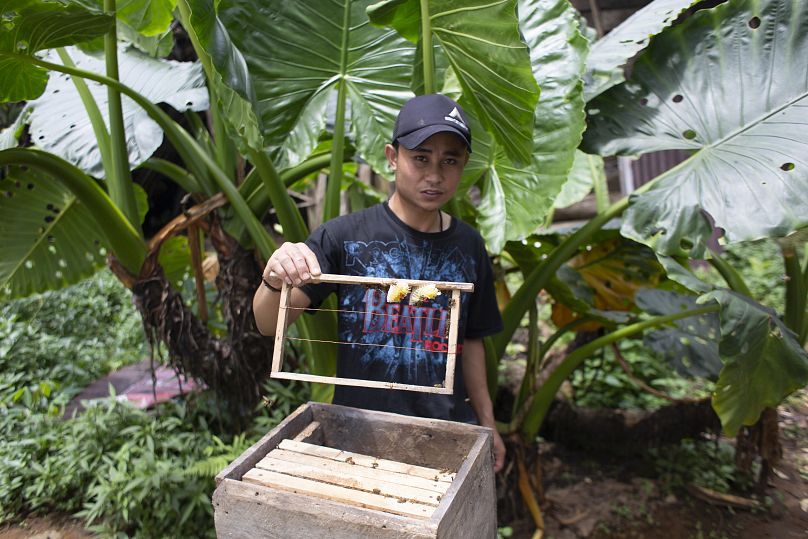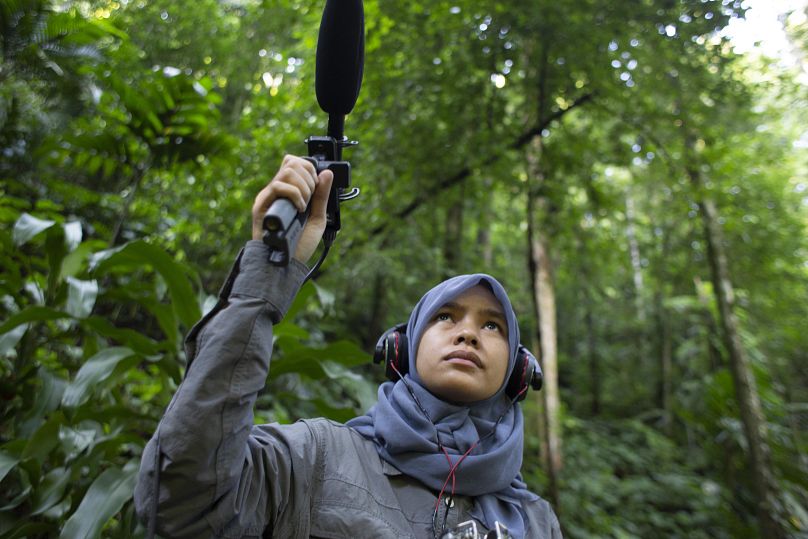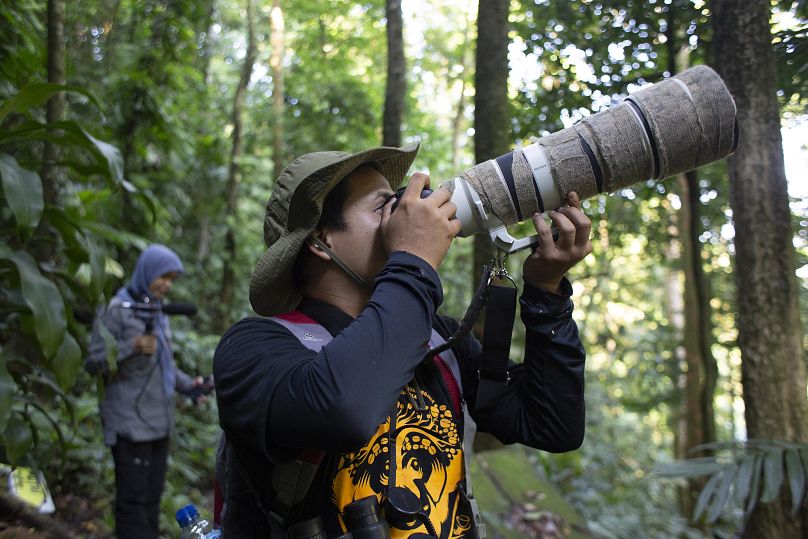“We can now only sometimes hear the sounds of the gibbons in the morning or evening. Before, according to locals, it used to be very noisy.”
SCENES shines a spotlight on youth around the world that are breaking down barriers and creating change. The character-driven short films will inspire and amaze as these young change-makers tell their remarkable stories.
A group of young Indonesians on the island of Java are on a mission to conserve endangered primates and their habitats. Java is the only place in the world that silvery gibbons, also known as Javan gibbons, call home, but it’s also densely populated by humans. Working under the non-profit organisation, Swara Owa, which means ‘gibbon’s voice’ in Bahasa, the conservationists are trying to strike a balance between two issues: wildlife conservation and human development.
Currently, more than 90 per cent of the gibbons habitat is used for agriculture and other human expansion. As a result, the endemic primates face serious threats of extinction as they are pushed to smaller areas in the rainforest that aren’t big enough to support them.
“We can now only sometimes hear the sounds of the gibbons in the morning or evening. Before, according to locals, it used to be very noisy,” Swara Owa wildlife guide, Kurnia Ahmadin says. “If this forest is gone, then you will feel the consequences of it later,” he adds.
Habitat loss and hunting
Gibbons are the most endangered primates in the world. This is down to two reasons: habitat loss and hunting. “There are so many people that come here to hunt. It’s become a hobby and that’s a big challenge for us,” explains Kurnia.
With this in mind, Swara Owa set up the Coffee and Primate Conservation Project (CPCP) in 2008, an initiative that has become instrumental in the preservation of gibbons. The ongoing plan offers a compromise between villagers’ needs and their conservation objectives. It provides economic alternatives, such as beekeeping or coffee harvesting, to former hunters or people who did illegal logging in the area.
“In the past, my father worked as a hunter and logger, cutting down wild trees, which is illegal and forbidden,” says Ismiati, a coffee grinder at Swara Owa. “My father did it because he needed the money to pay for his children’s school fees and also because he didn’t know how to earn a living without damaging the rainforest until Swara Owa provided us with awareness and persuaded us not to hunt,” she explains.
Locals have been harvesting coffee for decades, but environmental conservation was never a priority. This meant that precious forest land was cleared to make way for coffee plantations. Until Swara Owa came up with a plan to optimise production by using wild coffee growing under the forest canopies in which the Javanese gibbons reside. This way the coffee is harvested traditionally and the land is also maintained for the gibbons, rather than being turned into coffee farms.
Sustainable livelihoods
Beekeeping is another innovative way Swara Owa helps provide villagers with sustainable livelihoods, as well as contributing towards gibbon conservation. The organisation provided local training, as well as establishing an information centre on the custom.
“Beekeeping has two benefits. Firstly, beekeepers can make an income from selling their products. Then the other benefit, which I think is the most important, is ecological. As bees are pollinators and crucial to rainforest sustainability, beekeeping creates a close relationship between men and nature and the environment around them,” beekeeper specialist Sidiq Hardjanto tells Scenes.
Apart from reliable and sustainable incomes, Swara Owa is also active in gibbon-watching and carrying out field research. Gibbon researcher Nur Aolia uses remote cameras and recordings to assess differences between gibbons. She says, “This research can identify each individual voice and because the female voice indicates territory, it means it can also identify groups, because of that, we can also conduct a population survey.” The organisation is also a training ground, with students able to join in the efforts through scholarships.
Keepers of the forests
Swara Owa’s vision is to provide sustainable lifestyles for locals while preserving gibbon numbers. The villagers now understand the need to farm responsibly and share the charity’s mindset. “Gibbons are our farmers, they are the guardians of our rainforest,” says Kurnia. “We have to conserve the forest, not only for ourselves but for the future of the next generation,” Ismiati adds.
Swara Owa has proven that environmental conservation and human development does not have to be either-or. There is room in Java to help preserve nature, whilst also protecting the livelihoods of people. With their continued efforts, the organisation hopes to spread more awareness about the conservation of gibbons and Java’s unique habitat.

